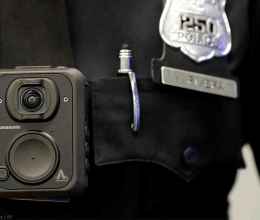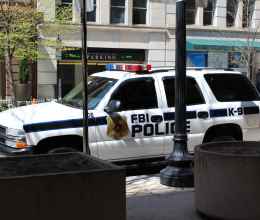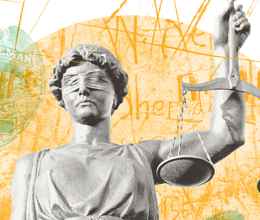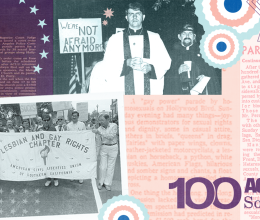The growing problem of police violence and public mistrust in law enforcement isn’t a breakdown of policing but of democracy.
The secrecy and immunity that shield police officers from scrutiny and liability are products of democratic policymaking. They haven’t been imposed extra-legally; they were enacted through state legislatures and embedded in state law. It is state law that sets the terms of transparency and accountability, mandating what information the public may have about police officers and establishing the extent to which the police may be held accountable for misuse of the immense powers the public grants them.
Some might pinpoint the breakdown in terms of the majority’s disregard for the rights and interests of others and specifically people of color. On this view, the policies that have been enacted and the abuses that have resulted from them – the racial disparities in stops, detentions, searches, arrests and uses of force; the failure to indict and convict officers for breaking the law; and the failure to use special prosecutors in cases of police misconduct; etc. – reflect precisely what the electorate, or at least a majority of it, wants to see.
This view makes the critical assumption that public opinion translates necessarily and directly into public policy. But how true is that assumption? It certainly doesn’t hold true when it comes to gun control – the public overwhelmingly supports universal background checks for all gun buyers and solidly supports a nationwide ban on the sale of assault weapons – nor does it work with respect to policing.
Consider what policing reforms California voters want and what their elected representatives provide them.
Last year, the ACLU of California released the results of statewide polling on policing reforms. Those results amply demonstrated that California voters want transparency regarding police misconduct:
- 84% favored requiring police officers to wear body cameras, and 74% endorsed public access to video captured by those cameras when an officer stands accused of misconduct.
- 79% said that if police officers have been found to have engaged in misconduct, the public should have access to information from the investigations, with nearly two-thirds (64%) supporting public access whenever an officer is accused of misconduct.
The level of consensus shown by these results is significant and should not be glossed over. While polls consistently find stark disparities in how people of different races and ethnicities view police and assess police violence, and although politics has become highly polarized and fiercely partisan, the strong support for increased transparency carried across racial, ethnic and political party lines. For instance, full public disclosure of police misconduct investigations garnered support from more than nine in ten African American voters (91%), five out of six Latino and Asian voters (84%), and over three-quarters of white voters (76%), as well as nearly nine in ten Democrats (87%), almost four out of five independents (78%) and two-thirds of Republicans (67%).
Yet, despite enjoying such widespread and overwhelming support, these reforms have not been enacted, and this isn’t likely to change any time soon. Last year the bills relating to body cam video by and large attempted to prohibit rather that permit public access – those bills fortunately were defeated, but that left police departments, like the LAPD, free to adopt policies that seek to ensure the public never sees video from body cams. And this year a bill with a bipartisan list of authors (SB 1286) – which would have given the public some access to police discipline records – failed to make it out of the appropriations committee, or even get a hearing in appropriations.
So why isn’t public opinion enough – why are California politicians doing or attempting to do the exact opposite of what the public wants? It’s because the police lobby wields an inordinate amount of power, and too few politicians are willing to challenge it. The efforts to make body cam video and investigations into police misconduct accessible to the public – and seemingly all major police reforms – have been vehemently opposed by police unions and law enforcement organizations, which work excessively to promote secrecy and avoid scrutiny and criticism. So long as politicians are unwilling to legislate in the public interest and risk the criticism and reprisals of the police lobby, the state legislature will remain captured by and captive to the very agencies it should be regulating on behalf of the public. There’s been so much talk this election season about rigged our political system is, but this has received no attention.
What can be done? We have to forget what we were taught as children on Schoolhouse Rock about how a bill becomes law – it takes much more than a good idea and a call to your elected official. We must recognize that law enforcement is one of the most aggressive special interests in politics, and we must be just as organized, focused, and assertive, pulling on every lever of influence and power at our disposal to neutralize if not overcome the outsized power of the police lobby to block the reform we all know we need.
It’s not enough to support or favor police reform; we must demand it. We need to let politicians know – through letters, phone calls, email and faxes as well as visits to and pickets of their offices and ultimately at the polls – that there is a price to pay for failing to enact police reform, and we must be willing to make them pay it.
Hector Villagra is executive director of the ACLU of Southern California. Follow Hector on Twitter.






